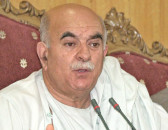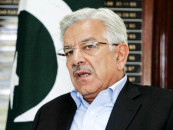Constraints of the 18th Amendment: ‘Devolution ineffective without reform in civil services’
Dr Waseem argues that constitutional amendments alone will not bring any tangible change.

Without reforms in the civil services, the 18th Amendment alone will not bring any tangible change in the power structure of the governance of the country.
In the same vein, he retorted that without reforms in the civil services, the 18th Amendment alone will not bring any tangible change in the power structure of the governance of the country.
Waseem, a professor of political science at the Lahore University of Management Sciences (LUMS) expressed his views on Friday about the ‘18th Amendment and Civil-Military Relations.’ The discussion was organised by the Pakistan Study Group on Federalism at the National Institute of Historical and Cultural Research, Quaid-i-Azam University, Islamabad.
He talked at length about the state’s neglect in empowering provinces and accumulating power. “The 18 Amendment requires strengthening of the provincial civil services, besides it demands capacity building of all the provincial institutions which will not be possible without due reforms in the structure of civil services,” he remarked.
The speaker observed that religious minorities were excluded from the mainstream politics and should be given due representation. “Punjab dominates the mainstream narratives and has caused the Punjabisation of Pakistan.
“There are no provisions in the 18th Amendment for the accountability of the security agencies and setting up of a Federal Constitutional Court,” he added.
In response to a question, Dr Waseem recalled that after partition, India accommodated cultural and linguistic identities and created new provinces on the basis of it whereas Pakistan undermined its diversity.
He further said that provinces were reluctant to hold local bodies’ elections and this was an epic case of “centralised decentralisation”.
Later, Dr Zarina Salamat, vice-president of Council of Social Sciences, said the local bodies system was the only way out for the strengthening of inclusive democracy.
Published in The Express Tribune, February 21st, 2015.



















COMMENTS
Comments are moderated and generally will be posted if they are on-topic and not abusive.
For more information, please see our Comments FAQ